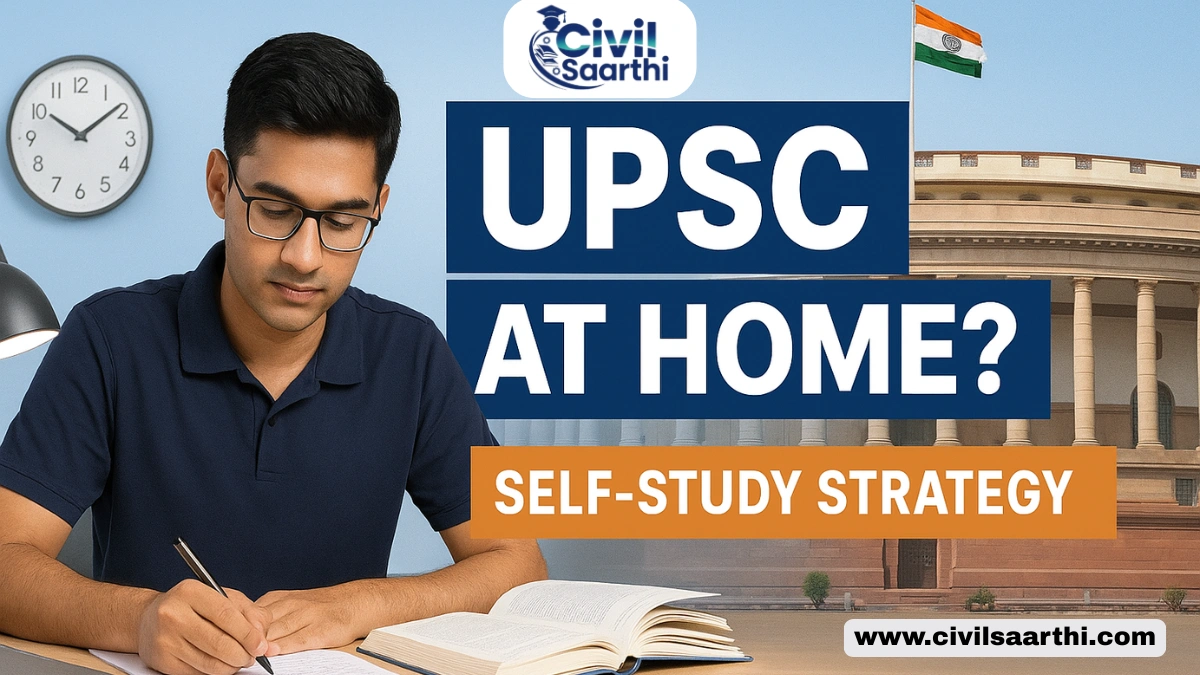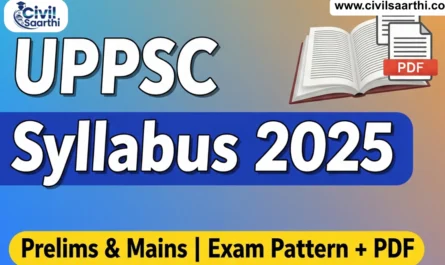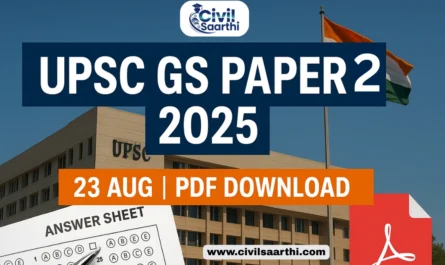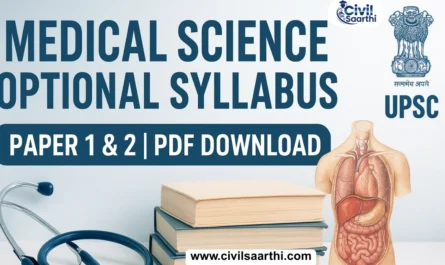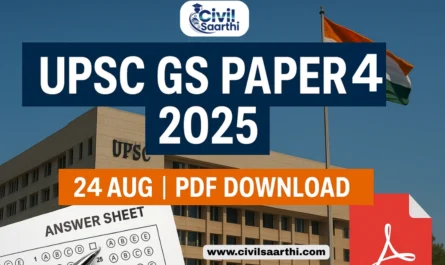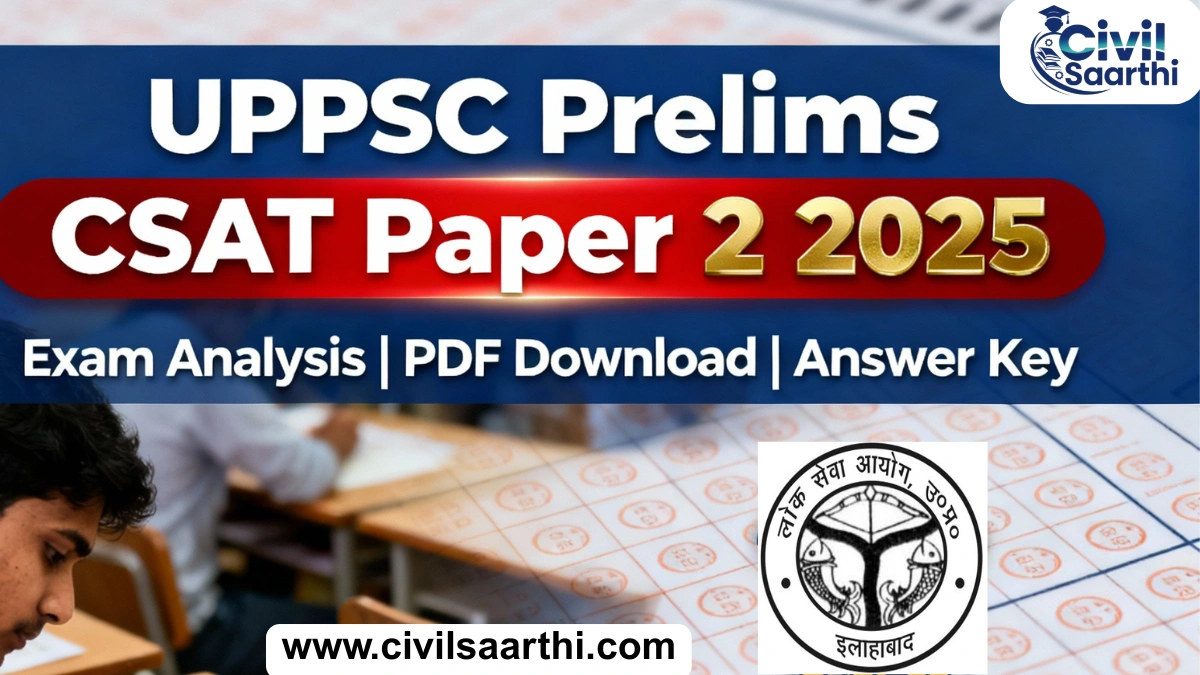The UPSC Civil Services Examination (CSE) is one of the toughest and most prestigious exams in India. Every year, lakhs of aspirants dream of becoming IAS, IPS, or IFS officers, but only a handful succeed. Traditionally, many candidates move to big cities like Delhi, Hyderabad, or Bengaluru to join reputed coaching institutes. However, a growing number of aspirants are now asking: “Can UPSC preparation be done at home?” The answer is a resounding YES. With the right planning, discipline, and resources, it is absolutely possible to clear UPSC without attending physical coaching classes.
Why Choose Home Preparation for UPSC?
Preparing at home gives aspirants the freedom to design their own schedule without being bound by the rigid timetables of coaching institutes. It also helps in saving significant expenses, since coaching fees, accommodation, and living costs in metro cities can be overwhelming.
Moreover, technology has made home preparation easier than ever before. From free YouTube lectures to online mock tests, everything is accessible at your fingertips. This flexibility allows aspirants to prepare effectively at their own pace and according to their learning style.
Also Read: UPSC Prelims Syllabus 2026
Advantages of UPSC Preparation at Home
Preparing from home is cost-effective, eliminating the heavy expenses of coaching and accommodation. It also gives you flexibility to design your schedule, allowing you to study at your peak productivity hours.
Additionally, online resources now provide coaching-like guidance from the comfort of your home. This combination of affordability and flexibility makes home preparation an attractive choice for serious aspirants.
Steps to Prepare for UPSC at Home
If you are preparing without coaching, a systematic plan is essential. Below are the steps you can follow:
Understand the Exam Pattern: Learn about the three stages: Prelims (objective), Mains (descriptive), and Interview (personality test). This gives direction to your preparation.
Go Through the Syllabus: Keep a printed copy of the UPSC syllabus near your study desk. It helps in tracking progress and ensures you study only what’s relevant.
Start with NCERTs: Read Class 6–12 NCERTs for History, Polity, Geography, and Economy to build a strong conceptual foundation.
Move to Standard Books: Once basics are clear, shift to books like Laxmikanth (Polity), Spectrum (History), GC Leong (Geography), and Shankar IAS (Environment).
Make a Realistic Timetable: Dedicate 8–10 hours daily. Divide time between static subjects, current affairs, revision, and answer writing practice.
Use Online Resources: Follow reliable YouTube channels, government websites (PIB, PRS), and mobile apps for lectures, notes, and mock tests.
Practice Answer Writing: UPSC Mains demands structured, clear answers. Start writing daily on previous year’s questions or join an online writing program.
Attempt Mock Tests and PYQs: Regularly solve UPSC previous year papers and enroll in online test series to analyze strengths and weaknesses.
Focus on Current Affairs: Read newspapers like The Hindu or Indian Express, and refer to monthly magazines like Yojana and Kurukshetra.
Revise Consistently: Revision is key. Make short notes and revise multiple times before the exam instead of just reading new material.
Stay Consistent and Motivated: Self-study requires discipline. Avoid distractions, track progress, and keep yourself motivated through topper interviews and peer discussions.
Also Read: UPSC CSAT Booklist
Also Read: UPSC General Studies Books for Prelims and Mains
Essential Resources for UPSC Preparation at Home
Preparing at home requires carefully chosen resources. NCERTs, standard UPSC books, government reports, and reliable online platforms should be your backbone. Avoid piling up too many books or notes; instead, focus on quality over quantity. Online test series and YouTube lectures can substitute classroom teaching if used wisely.
Challenges in Home Preparation
Despite its benefits, home preparation comes with challenges like lack of peer competition, difficulty in clearing doubts, and distractions from family or social media. Aspirants must overcome these hurdles with strong willpower and time management.
Joining online forums or discussion groups can help reduce isolation, while setting strict digital boundaries ensures you stay focused on your studies.
Inspiring Success Stories
Several UPSC toppers have proved that coaching is not mandatory. Ira Singhal (AIR 1, 2014) and Anudeep Durishetty (AIR 1, 2017) relied heavily on self-study and online resources. Their journeys highlight that determination and smart work are more important than expensive classes.
These examples serve as strong motivation for home aspirants, showing that with the right strategy, success is possible from anywhere.
Tips to Stay Motivated During UPSC Preparation at Home
Set daily and weekly targets to track progress.
Use a study journal to monitor completed tasks.
Take short breaks to avoid burnout.
Stay connected with UPSC peer groups online.
Remind yourself daily of your end goal, becoming a civil servant.
Also Read: How to Prepare Effectively for UPSC CSE Exam 2026
UPSC Preparation at Home FAQs
Q1. Can I crack UPSC without coaching?
Yes, many toppers have cleared UPSC through self-study using books, NCERTs, and online resources.
Q2. How many hours should I study daily at home?
A minimum of 8–10 hours daily is recommended, with proper breaks and revisions.
Q3. What is the most important factor for self-study?
Consistency and revision are the keys to effective preparation at home.
Q4. Should I join a test series if preparing from home?
Yes, at least for Prelims and Mains, test series help in practice and performance evaluation.

